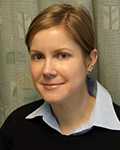11 Feb Home Saliva Test Can Assess Your Personal Circadian Cycle
MedicalResearch.com Interview with:
Helen J. Burgess, Ph.D.
Professor, Departments of Behavioral Sciences & Internal Medicine
Director, Biological Rhythms Research Laboratory
Director, Center for Clinical Chronobiology
Rush University Medical Center
Chicago IL 60612
Medical Research: What is the background for this study? What are the main findings?
Dr. Burgess: The 24 hour circadian clock in the brain has a profound influence on mental and physical health. Circadian rhythm sleep disorders occur when the internal circadian clock’s timing is out of synch with the external social world, which often dictates when we should eat, work and sleep. One such disorder, delayed sleep phase disorder, occurs when the circadian clock runs too late relative to social time.
Patients with delayed sleep phase disorder can appear to simply have insomnia, but careful measurement of their circadian timing can reveal the underlying circadian cause. Also, the treatment of delayed sleep phase disorder with either bright light and/or melatonin can be optimized by knowing a patient’s circadian timing, because the effect of these treatments can vary widely depending on when they are administered.
A problem in the sleep and circadian field is that the gold standard marker of circadian timing in humans, the dim light melatonin onset (DLMO), is typically only measured in the clinic or laboratory. Many clinics do not even measure the DLMO. Our group recently developed a home saliva collection kit to assist people in measuring their DLMO at home. Previously, we found the home DLMOs compared very well to laboratory DLMOs in healthy controls. In this paper, we extended this work to show the kit also works well in patients with delayed sleep phase disorder.
Medical Research: What should clinicians and patients take away from your report?
Dr. Burgess: It is possible to accurately assess a patient’s dim light melatonin onset using a home kit. The practice of measuring DLMOs in the home will become more common, just as screening for sleep apnea increasingly occurs in the home.
Medical Research: What recommendations do you have for future research as a result of this study?
Dr. Burgess: Now that we can accurately assess circadian timing at home, we should start assessing circadian timing in clinical illness. Given the profound influence of circadian timing on mental and physical health, if we can improve circadian timing in any illness, we are very likely to reduce symptom burden and improve treatment outcomes in patients.
Citation:
J Sleep Res. 2016 Feb 5. doi: 10.1111/jsr.12384. [Epub ahead of print]
Home dim light melatonin onsets with measures of compliance in delayed sleep phase disorder.
Burgess HJ1, Park M2, Wyatt JK2, Fogg LF3.
Dr. Helen Burgess (2016). Home Saliva Test Can Assess Your Personal Circadian Cycle
Last Updated on February 11, 2016 by Marie Benz MD FAAD

